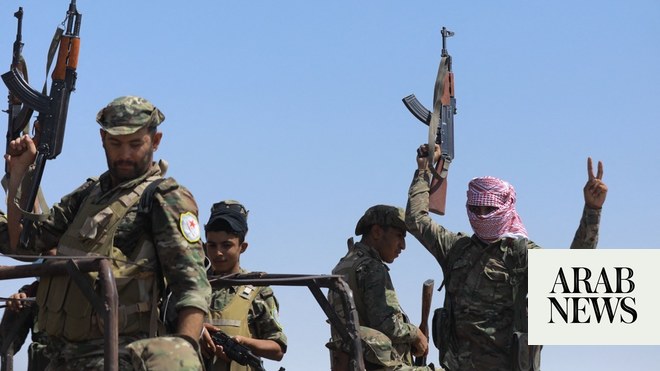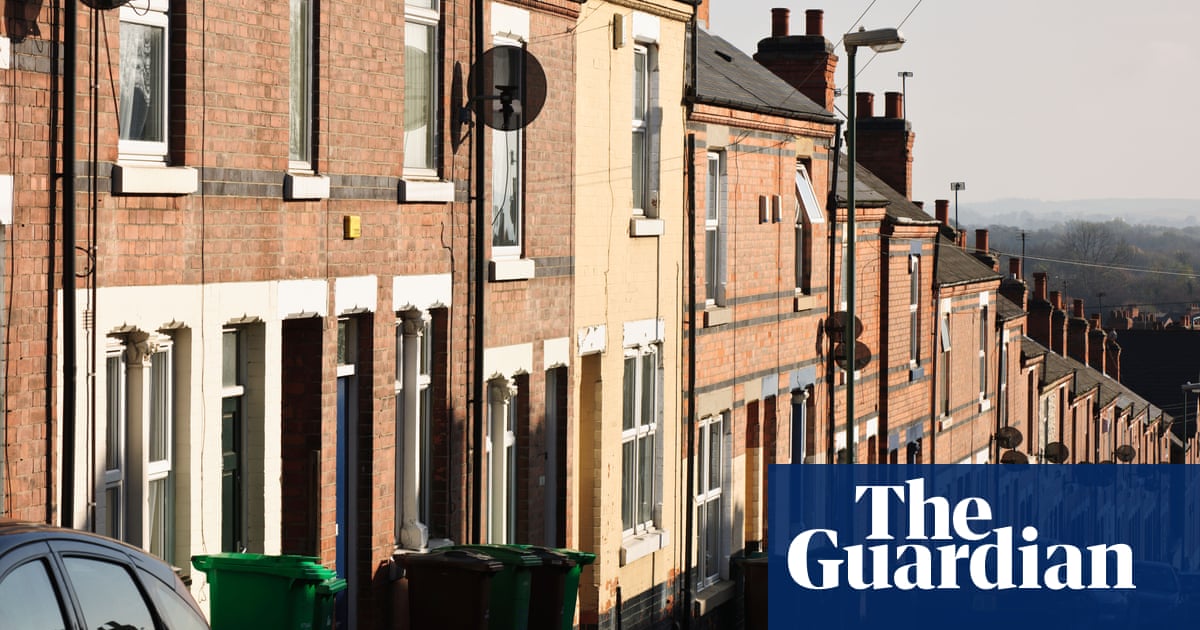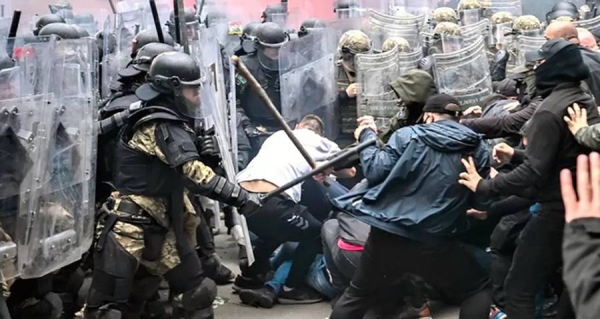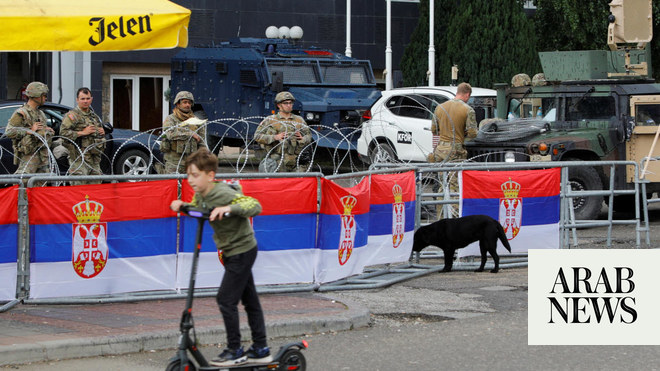
Extra 6,000 security personnel drafted in and access to foreigners restricted
JAKARTA: An internet blackout in Indonesia’s Papua province will remain in place until violent pro-independence protests have been quelled, security chiefs have warned.
Indonesian authorities have drafted thousands more troops into the region and further limited access to foreigners as demonstrations entered their third week.
“We are forced to do it and I have promised many times that we will withdraw the troops, we will restore access to social media … I will make sure it happens once the situation returns to normal,” Indonesia’s Security Minister Wiranto said on Monday.
He added that the situation had forced the government to restrict foreigners from entering West Papua and Papua province after four Australians, who reportedly participated in a pro-independence rally, were on Monday deported from the country.
National Police chief, Gen. Tito Karnavian, on Sunday announced that an additional 6,000 security personnel had been deployed to the region.
Thousands of people in both Papuan provinces took to the streets on Aug. 19 in protest at alleged abuse against Papuan students in Surabaya, the capital of East Java province.
The students were reportedly attacked by security personnel and members of mass organizations who accused them of refusing to celebrate Indonesia’s Independence Day on Aug. 17. Many were besieged in their dormitories, verbally abused, fired on with tear gas, and briefly arrested.
The incident led to a series of protests against discrimination and racial abuse. In recent days, however, they have turned into pro-independence demonstrations. Reports said at least nine civilians were killed during protests last week, but the internet blackout has made it difficult to verify the claims.
The process of merging what is now West Papua and Papua (called collectively “West Papua” by pro-independence activists) with Indonesia started in the early 1960s, when the young republic, formerly a Netherlands colony, took over the last part of the region where the Dutch were still present. The move was authorized by the 1962 UN General Assembly.
Papua officially became Indonesian in 1969, following an election known as the Act of Free Choice, in which 1,000 representatives of various Papuan tribes voted in favor of joining the Republic of Indonesia. As their votes were cast in a heavy military presence, the referendum has also been referred to as the Act of No Choice. It was, however, recognized by the UN.
Today, very few among the Indonesian public would claim that the plebiscite was properly executed. This is a main argument of the Papuan separatist movement and rights groups for an open debate and a democratic vote on self-determination.
However, according to Saiful Mujani, it is not likely to happen in the foreseeable future.
The political science professor at Jakarta’s State Islamic University Syarif Hidayatullah and founder of Saiful Mujani Research and Consulting, told Arab News: “I don’t see any members of the elite opting for a Papua referendum. They look at Indonesia’s integrity, and Papua is seen as a part of it. If Papua is allowed to hold a referendum, other regions might demand one as well. It could have a ripple effect.”
A low-level insurgency against Jakarta has been waged since the 1969 referendum. Periodic crackdowns on dissenters, and security operations against armed separatists in Papua, almost always draw international outrage and raise concerns over violations by the Indonesian military.
While some of the incidents have been investigated by the National Commission on Human Rights (Komnas HAM), with clear demands for holding members of the security forces accountable, limited access to the region for foreign journalists and rights monitors suggest many cases remain unrecorded.
Reports of abuse, harassment and arbitrary detentions last year prompted then UN rights chief, Zeid Raad Al-Hussein, to request the Indonesian government to allow his office to investigate human rights conditions in Papua. While the authorities promised to facilitate the visit, the invitation to the UN high commissioner has not yet been honored.
Instead, since December security measures have been heightened in the region following a massacre of construction workers in Nduga regency, for which members of the separatist movement claimed responsibility.
Shootings between joint police and military personnel and armed militants have become regular, while more frequent searches of political activists and bans on their gatherings in Papua have turned long-simmering resentment into rage, sparking the ongoing protests.
What makes the current rallies in Papua different from previous protests are the clear calls for independence and a massive display of separatist sentiment, with the Morning Star flag prominently featured during demonstrations. As in previous years activists have been jailed for raising the flag used by the Free Papua Movement (OPM).
The future of Papua now depends on how Indonesian President Joko Widodo handles the current situation, and whether he will be able to win the hearts and minds of Papuans, Airlangga Pribadi Kusman, political science professor at Airlangga University in Surabaya, told Arab News.
“This approach will have to touch the roots of the problem by addressing past and current human rights violations and bringing sociocultural rehabilitation, as the Papuan people feel discriminated and marginalized even in their own land.
“It must also address governance problems between the central and local government, which result in a failure to improve and provide appropriate access to health care, education and to strengthen the peoples’ economy,” he said.
The professor added that sending more troops to the region showed that the government’s current priority was national security. “The national security approach that disregards human security will not solve the crisis or any other problem in Papua.”












